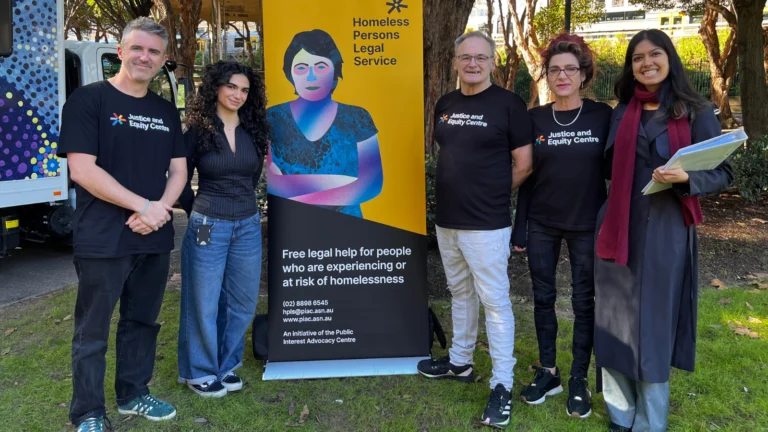People in Australia’s onshore immigration detention centres are now held for an average of about 500 days: an all-time high, and far longer than other similar countries, according to a report by the Australian Human Rights Commission.
Risk Management in Australian Immigration Detention, released on 18 June, also found that Australia’s immigration detention regime is especially harsh and that detainees are held in increasingly prison-like circumstances.
‘This report highlights many of the issues we see with our clients,’ said Mary Flanagan, Senior Solicitor in PIAC’s Asylum Seeker Health Rights Project.
‘We know that indefinite detention leads to serious declines in mental and physical health and that harsh detention environments compound these declines. We’ve seen this time and time again with our clients.’
The Asylum Seeker Health Rights Project shares a number of key concerns, including that:
- inaccurate risk assessments may result in people in detention being subject to restrictions that are not warranted in their individual circumstances;
- the use of restraints when detainees are escorted outside detention facilities has become routine, and may in some cases be unnecessary; and
- conditions in high-security accommodation compounds and single separation units are typically harsh, restrictive and prison-like.
‘This report also highlights that Australia continues to detain people under our system of mandatory immigration detention when there is no valid justification under international law,’ said Mary Flanagan.
Risk Management in Australian Immigration Detention is available on the Australian Human Rights Commission’s website.

